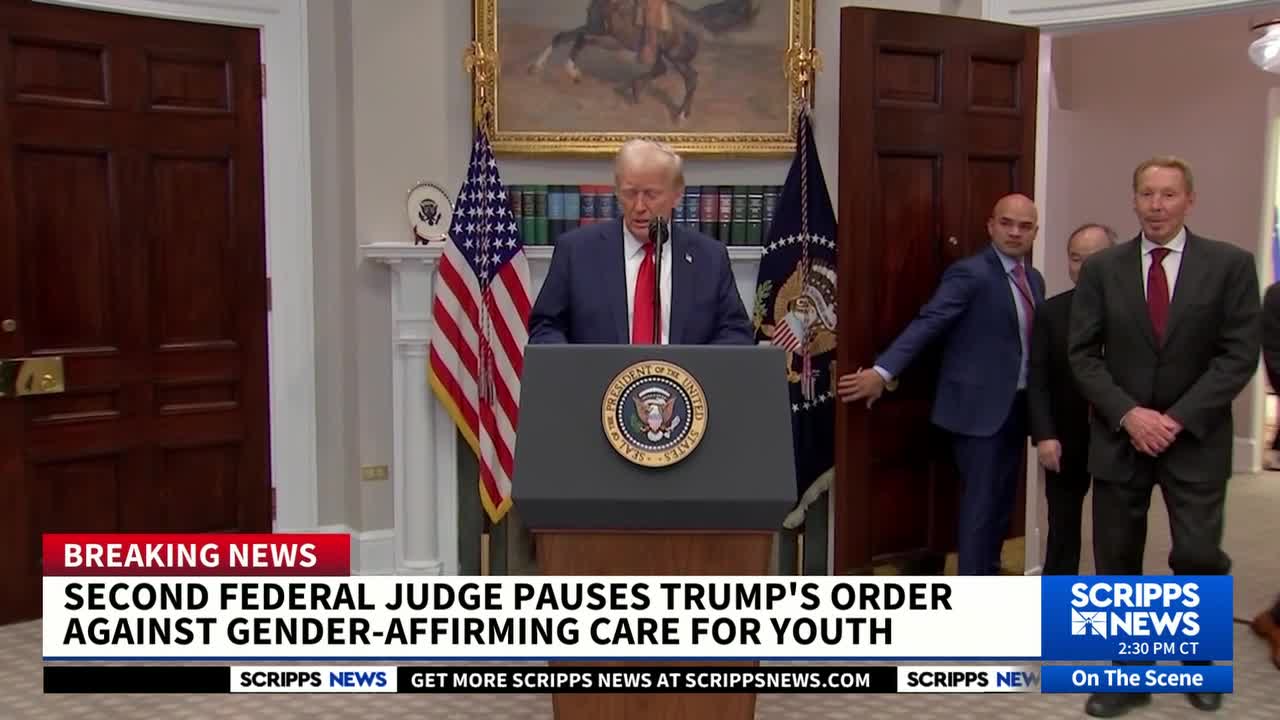Posts misrepresent gender-neutral terminology in Wisconsin bill | Fact check

The claim: Wisconsin governor introduced bill that would replace 'mother' with 'inseminated person' in state law
A Feb. 21 Facebook post (direct link, archive link) shows an excerpt of a bill in which several words like "wife" and "mother" are replaced with gender-neutral terms such as "inseminated person" and "person being inseminated."
"EXCLUSIVE: Democrat Wisconsin Governor Tony Evers has introduced a bill that will change state law to replace the word 'mother' with 'inseminated person,'" the post's caption reads.
The post was shared more than 500 times in six days. Other versions of the claim were shared on Instagram, Facebook and X, including a version shared by Tesla and SpaceX founder Elon Musk.
More from the Fact-Check Team: How we pick and research claims | Email newsletter | Facebook page
Our rating: Missing context
The nearly 2,000-page bill replaces the word "mother" when referencing in-vitro fertilization, or IVF. But the terminology is changed only a handful of times and only in reference to IVF. The words "wife" and "mother" are frequently used throughout the rest of the bill.
Post misrepresents language in Wisconsin budget bill
Britt Cudaback, a spokesperson for Wisconsin Gov. Tony Evers, told Paste BN the claim is wrong. She said the bill referenced in the post is a nearly 2,000-page "state biennial budget," which is always introduced by the Joint Committee on Finance by request of the governor.
The bill only uses the gender-neutral terms "inseminated person" and "person being inseminated" when speaking about birth by artificial insemination, as is shown by the section's title. The words "mother" and "wife" are used frequently throughout the rest of the budget bill, with "mother" appearing 80 times and "wife" appearing 158.
Cudaback said this language originated from a 2019 bipartisan bill, which acknowledged the legal parentage of same-sex couples under certain circumstances and adopted gender-neutral parental terminology.
The change was aimed at codifying the federal court ruling, Torres v. Seemeyer, in which a married lesbian couple who used IVF to conceive argued that both mothers should be listed as parents on the child's birth certificate. Only the mother who gave birth was listed on the certificate at the time because Wisconsin law refers to a "husband" and "wife" in filling out birth certificates and birth records.
"(The bill) has nothing to do with what parents call themselves or what kids call their parents, does not eliminate ‘mother’ and ‘father’ from state law and is about ensuring full legal rights for parents under the law," Cudaback said.
Fact check: Trump cut federal funds for cities that support 'LGBTQ activism'? Not true
Evers responded to the misleading claim in a Feb. 24 interview with Fox11.
"All this does, it gives people a chance that are using IVF ... (to) have legal certainty about a mom being able to have a year worth of care," he said. "Moms are moms, dads are dads."
Wisconsin is not alone in the journey towards gender-neutral language. Eight states have adopted the latest version of the Uniform Parentage Law, which uses gender-neutral terminology to ensure the equal treatment of children born from same-sex couples, and three more have introduced it, according to the Uniform Law Commission.
Paste BN reached out to Musk and the user who shared the post for comment but did not immediately receive a response.
Lead Stories and Snopes also debunked the claim.
Our fact-check sources
- Britt Cudaback, Feb. 27, Email exchange with Paste BN
- Wisconsin Legislature, Feb. 24, 2025 Senate Bill 45
- Fox11 (YouTube), Feb. 24, 'Mother' to 'inseminated person:' Wisconsin governor defends language changes
- Lambda Legal, accessed Feb. 27, Torres v. Seemeyer
- Uniform Law Commission, accessed Feb. 27, Parentage Act
Thank you for supporting our journalism. You can subscribe to our print edition, ad-free app or e-newspaper here.
Paste BN is a verified signatory of the International Fact-Checking Network, which requires a demonstrated commitment to nonpartisanship, fairness and transparency. Our fact-check work is supported in part by a grant from Meta.